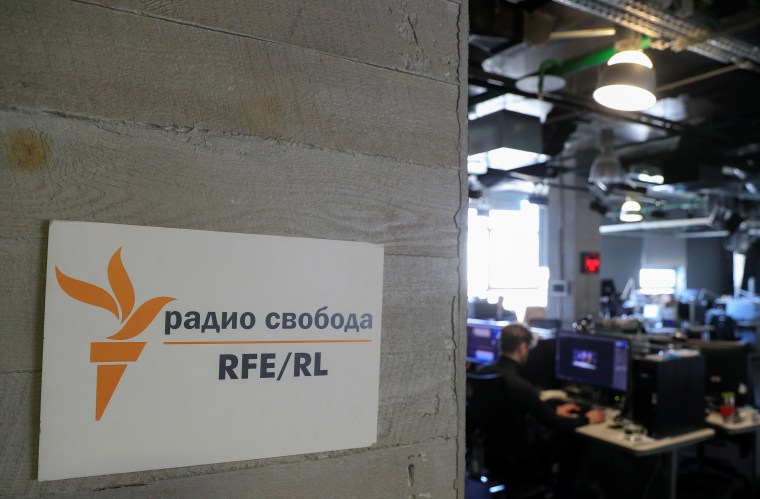Ukrainian filmmakers disappointed by Oscar win by Russian documentary ‘Navalny’

Azad Safarov, Olena Razvodovska and teachers Marharyta Mykolaivna and Olha Viktorivna (Photo:@Azad Safarov/Facebook)
Ukrainian documentary filmmakers have said they are disappointed at losing out at the Oscars to a film about imprisoned Russian opposition leader Alexei Navalny, and because not a single word was mentioned about Russia’s war against Ukraine at the ceremony.
The Russian documentary “Navalny” beat the Ukrainian Oscar-nominated documentary “A House Made of Splinters” in the Best Documentary Feature category at the 95th Academy Awards, better known as the Oscars, which were held in Los Angeles, United States, overnight on March 13.
The Ukrainian team behind “A House Made of Splinters” was disappointed that the team that made “Navalny” made no mention of Russia’s war of aggression on Ukraine while accepting their award.
The Ukrainian team’s second film director and line producer, Azad Safarov, in a Facebook post also expressed his disappointment over the fact that his team “could not bring an Oscar to Ukraine,” noting that they “really wanted to give a little joy to Ukrainians in these difficult times.”
“We should have won not because we are from Ukraine, but because the film is deep, valuable and talentedly shot by Danish film director Simon Lereng Wilmont and made by a cool team,” Safarov said.
“But this evening proved it once again that Russian propaganda works very well and knows how to promote pseudo-heroes where there are no heroes. So, we have a lot of work to do. We’re Ukrainians, we don’t complain. We’re fighting. We convince, report, prove information over and over again until they hear us. Even if they still have to hear us in Hollywood.”
The Ukrainian team headed by Danish film director Lereng Wilmont, together with Safarov and the documentary’s female characters, spent 10 days in the United States. During these days, they screened the documentary at many venues.
“Everywhere we could, we talked about Russian crimes, about the Russian war against Ukraine, and about Russian fake news,” Safarov said.
“Our goal was to draw as much attention as possible to Ukraine through the ‘A House Made of Splinters’ movie. And our two wonderful female characters from the temporarily Russian-occupied town of Lysychansk accompanied us everywhere. Thank you Marharyta Mykolaivna and Olha Viktorivna! We were greeted, supported, hugged everywhere, and asked about everything in Ukraine. The Americans are really, really worried about Ukraine.”
Safarov also promised that the Ukrainians would not give up.
“We’re Ukrainians, we aren’t offended,” he said.
“We’re fighting. We, like many cool Ukrainian film directors and producers, will do everything to ensure that Ukraine receives not only an Oscar, but also many other awards. We continue to fight. We love and hug you. Thank you for your support. We’re looking forward to returning home.”
For the second year in a row, the Academy refused to allow Ukrainian President Volodymyr Zelenskyy to remotely appear on the Oscar telecast to give an address.
In addition, not a single word of support for Ukraine or condemnation of Russia’s aggression against Ukraine was mentioned at the ceremony.












